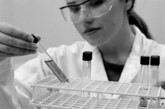Biosimilars
FDA rejects trastuzumab and rituximab biosimilars
US pharma giant Pfizer announced on 23 April 2018 that the US Food and Drug Administration (FDA) had rejected its application for approval of its trastuzumab biosimilar. Then Sandoz, part of Novartis, announced on 2 May 2018 that its biosimilar rituximab application had also been rejected.
Biosimilars in rheumatology: the current state of play
Biological disease modifying anti-rheumatic drugs (bDMARDs) have revolutionized the management of rheumatoid arthritis (RA) and other inflammatory diseases. Over two decades, their use has risen exponentially but their significant cost has contributed to increasing healthcare expenditure in many countries. Biosimilar development is an opportunity to lower drug expenses and optimize use. This review detailed the current state of biosimilars in rheumatology, including their development, trial data, economic impact and logistical considerations [1].
AbbVie and Samsung Bioepis reach patent deal over Humira biosimilar
Biosimilars maker Samsung Bioepis announced on 5 April 2018 that it had reached a ‘global resolution’ with pharma giant AbbVie ending all patent litigation regarding AbbVie’s blockbuster arthritis drug Humira (adalimumab).
Interchangeability is an obstacle to the use of biosimilars in the US
According to Professor Richard Frank from the Department of Health Care Policy, Harvard Medical School, Boston, USA, there are several factors that may account for the slow development of the market for biosimilars in the US [1]. In this article, the issue of interchangeability of biosimilars is discussed.
Australia approves rituximab biosimilar Truxima
South Korean biotechnology company Celltrion announced on 23 April 2018 that Australia’s regulatory body, the Therapeutic Goods Administration (TGA), has approved its rituximab biosimilar, Truxima (CT‑P10).
Phase I study of biosimilar trastuzumab demonstrates equivalent pharmacokinetics to reference product
Trastuzumab, a recombinant humanized monoclonal antibody, acts against the tyrosine kinase human epidermal growth factor receptor 2 (HER2), which is overexpressed in up to 30% of breast cancers and gastric cancers and has been linked to poor prognosis. In the age of targeted anticancer therapy, trastuzumab is a key treatment for patients with HER2-positive (HER2+) tumours and is recommended by a number of clinical guidelines. However, the use of ‘originator’ (or reference) biologicals, such as trastuzumab, is associated with high treatment costs; an issue set to be exacerbated by an ageing population. The improved cost-effectiveness potentially provided by a biosimilar may increase patient access to treatment.
FDA rejects Celltrion/Teva’s rituximab and trastuzumab biosimilars
South Korean biotechnology company Celltrion announced on 6 April 2018 that it had received complete response letters (CRLs) from the US Food and Drug Administration (FDA) regarding its candidate rituximab (CT‑P10) and trastuzumab (CT‑P6) biosimilars.
Afucosylated biosimilars: the path to matching interrelated critical quality attributes
Advances in analytical characterization and increased understanding of drug mechanisms of action have resulted in the ability to raise the quality and safety of biosimilars by introducing critical quality attributes (CQA), which must be preserved during the manufacturing process. However, to realize these benefits, biosimilars manufacturers must develop the means to ensure these CQAs are met. For afucosylated IgG1s that rely on afucosylation content for efficacy, this has been challenging, since precisely matching both afucosylation content and biological activity has proven to be extremely difficult. In a recent paper, Chung and Zhan [1] elaborate on the underlying basis of these difficulties and highlight the work of several groups that has opened a path to directly addressing this problem.
Naming is an obstacle to the use of biosimilars in the US
Factors that may account for the slow development of the market for biosimilars in the US are discussed by Professor Richard Frank from the Department of Health Care Policy, Harvard Medical School, Boston, USA [1]. In this article, the factor of biosimilars naming is discussed.
Obstacles to the use of biosimilars in the US
Professor Richard G Frank from the Department of Health Care Policy, Harvard Medical School, Boston, USA, discusses factors that may account for the slow development of competition in the market for biosimilars in the US [1].













